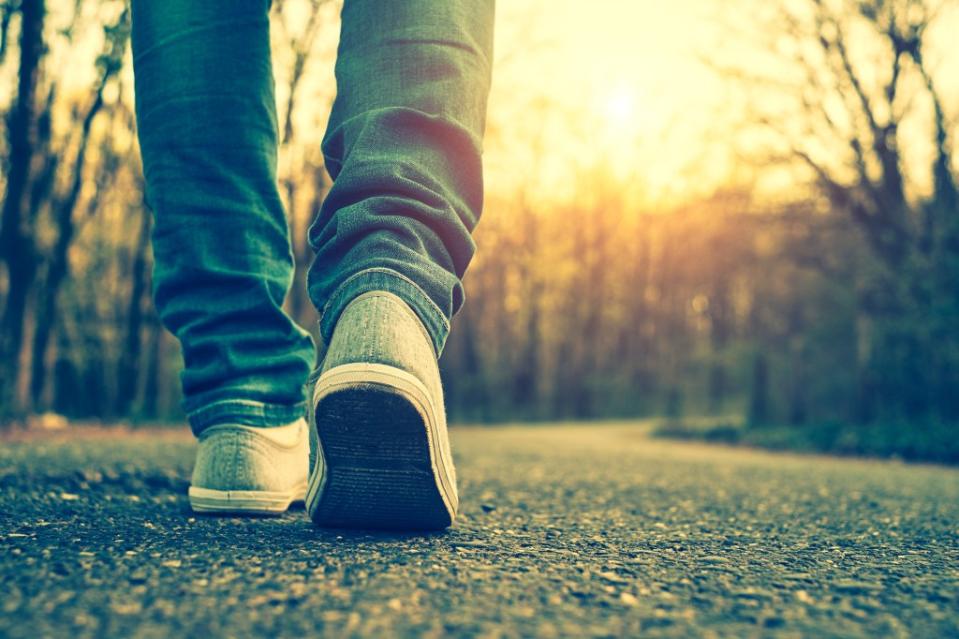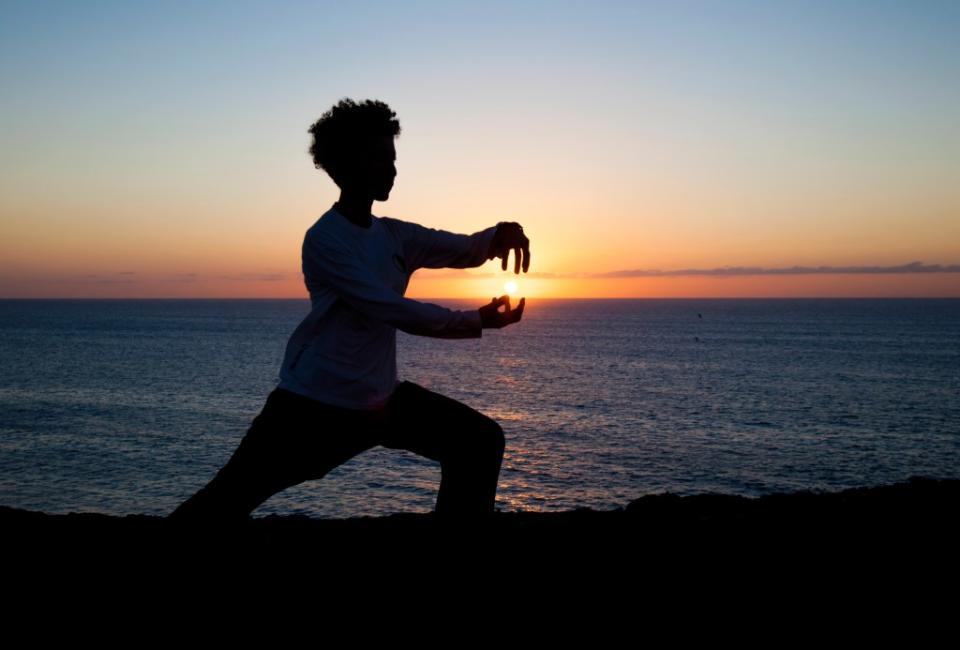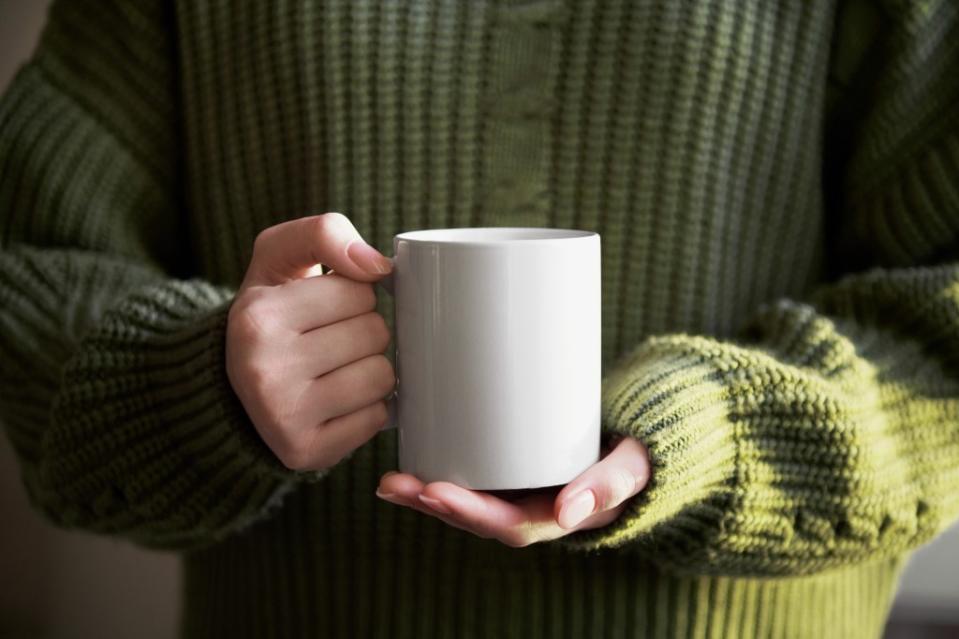Is your work life a living hell? Stay Zen with 6 tips from a monk

We live in a wilderness of stress, folks.
Recent research suggests that for most of us, the first signs of daily stress begin as early as 7:23 a.m. While my therapist maintains we cannot control what happens to us, we can control our response to it and prepare ourselves to mindfully navigate the rocky road of human existence.
To help us walk that road with a little more grace and a little less cortisol, we turn to the calming influence and insights of Shi Xing Mi (Walter Gjergja), a Shaolin secular monk of the 32nd generation.
In addition to being a buff monk, Gjerja is a philosopher, adviser, strategist, coach, speaker, author and co-founder of the trainer app Zing Coach. His mission is to share a philosophy inspired by Shaolin culture and provide “ancient wisdom for modern times.”
Can dig.
A native of Italy, Gjerja developed a passionate interest in Eastern philosophy and Chinese martial arts as a teen, competing internationally in Kung Fu Wushu. In the mid-1990s, the seeds of his future were sowed when he made his first trip to a Shaolin temple, but his professional pursuits took him in a different direction — namely toward a successful but largely unfulfilling corporate career as a CEO and director of a strategy consulting firm.
Craving meaning more than money, Gjerja made an about-face and traded the board room for the temple.
“I resigned, gave everything up and went back to deep dive into the Shaolin studies, eventually graduating in the temple several years later and then deciding to combine my experiences to share wellness and mindfulness wisdom in modern ways,” Gjerja told The Post.
Climbing the corporate ladder, Gjerja has been no stranger to stress, but through deepening his spiritual study he has developed training systems to help others lead fuller, more peaceful lives.
Gjerja identifies five widespread issues that he believes contribute to the proliferation of stress in our day-to-day lives,
“In my experience, these issues are an inability to create moments of mental silence, addiction to stimuli, lack of pace and patience, self-delusions, and misunderstanding of spirituality,” he revealed. “All can be overcome with simple — but not necessarily easy – habit changes.”
Read on to learn more about Gjergja’s tips for changing these habits, cutting stress and cultivating Zen.
1. Rise, shine and walk

Sitting still for long spells has been linked to an increased risk of dementia, while getting your steps in has been shown to reduce the risk of death.
In kind, and according to Gjergja, the No. 1 way to combat stress in the workplace and beyond is to lace it up and walk it out.
Gjergja imparts: “Even a quick 15-minute stroll is a powerful stress reliever, triggering the release of endorphins and regulating cortisol to keep your hormones in check and your mind healthy. All the while, physical activity gets the blood pumping, ensuring your organs receive all the oxygen and nutrients they need to deal with all that pent-up stress.”
Gjergja notes that walking outdoors is a crucial condition to reap the benefits of stress relief.
“Don’t be tempted to jump on a treadmill during the colder months. A daily dose of natural light will regulate your circadian rhythm, keep your neurotransmitters and hormones in balance and boost your mood by stimulating vitamin D production.”
2. Exercise mindfully

We all know that working up a sweat has a positive effect on mental and physical well-being. Yet, as Gjergja explains, mindful movement is the key to reducing stress.
“Exercise can help you to relax, but you must be mindful of quantity and quality. Intense, prolonged aerobic exercise can temporarily increase the stress hormone cortisol.”
Gjergja suggests workouts that build strength in every sense.
“Choose workouts that offer plenty of movement but of moderate intensity. The flowing movements and conscious breathing of yoga, a slow and controlled tai chi routine, or cycling and swimming can offer a calming workout, a cortisol-cutting workout.”
Recent research suggests tai chi may help to reduce blood pressure and improve heart health even more than intense cardio, too.
3. Spend time in nature

Being outside, breathing fresh air under an open sky, is a surefire way to calm the chaos of the mind and cut the stress of work.
“Spending just 120 minutes a week in the fresh air can reduce stress levels by at least 30%, so eating your lunch in a park might be all you need to get you through a difficult day at the office,” Gjergja explains. “Spending time in nature promotes relaxation and enhances your mood by increasing serotonin production. Plus, being outdoors encourages you to exercise and reduces negative feelings, so it’s great for both your mind and your body.”
4. Eat well

“When we’re stressed, we snack — and not on the healthy stuff. Our comfort foods tend to be high in refined sugars and unhealthy fats, which offer temporary pleasure but increase our stress levels over time,” Gjergja reveals. “Foods high in sugar and processed carbohydrates cause blood sugar spikes, which trigger the release of stress hormones.”
The aim is to play the long game rather than the instantly gratifying one when it comes to nourishing ourselves.
Evidence indeed suggests that eating fatty food before or during a stressful event not only reduces the functioning of your brain and heart but actively slows your body’s recovery from stress.
Alternatively, eating foods rich in polyphenols, complex carbs, and omega-3 fatty acids can actively reduce the impact of stress on the body.
Looking forward, cooking ourselves a healthy meal at home is an effective way to cut stress and caloric abandon. Cooking was recently revealed to be the No. 1 stress-relieving task, according to Dr. Andreas Michaelides, Ph.D., chief of psychology at Noom.
“It’s a way to focus on a singular task, practice reflection, and create something positive that nourishes you and makes you feel good,” the good doctor says.
Bonus: You can make your smug, healthy leftovers lunch for tomorrow, thereby perpetuating a cycle of eating well and feeling good.
Win-win, folks!
5. Cut the coffee

Gjergja cautions against the quick fix of copious amounts of alertness-boosting caffeine.
“For your mental well-being, stick to water and opt for a balanced and nutritious diet, no matter how tempting coffee and candy may be: the short-term comfort will inevitably be followed by feeling even worse.”
While coffee remains America’s favorite beverage and does indeed contain a number of nutrients, excessive consumption is linked to anxiety, sleep disorders and increased blood pressure.
Add to the pot that many people add heavy creams, sweeteners, syrups and other superfluous ingredients to their daily cup — upping the calories and compromising the health benefits.
A better, albeit less amplifying choice? Chamomile tea.
6. Put your damn phone down

In a surprise to no one, cell phone use is a common culprit of stress as ceaseless connectivity divorces us from our true selves.
“Scrolling through social media may get the dopamine flowing, but the constant exposure to curated, often idealized content will eventually lead to social comparison and feelings of inadequacy, raising your stress levels every time you refresh the feed,” Gjergja explains. “Add the relentless stream of notifications, and your brain is bound to experience information overload.”
Scrolling more = feeling less than, and the consequences are as dire as impaired memory and information retention.
As a beginner step, try leaving your phone at home or pausing notifications while you work to make you more present and productive — two qualities proven to reduce work-related stress.
As Gjergja tells The Post, “The digital world does have its perks — connection, community and education — but you need to turn the tech off now and then, especially when you’re getting ready to turn in for the night. The blue light from screens disrupts our circadian rhythm and affects our ability to fall asleep, and the irritability that comes with fatigue will do little to improve your state of mind.”
Integrating one or all of these six suggestions can greatly improve your sense of peace and quality of life, Gjergja asserts.
“Small, consistent steps can make for long journeys and reach distant destinations. Make a little change today, for today is the only reality; do so again tomorrow, and you’ll be amazed at how different you’ll feel in a few short weeks or months.”
Be better, one step at a time and every day thereafter.
Astrologer Reda Wigle researches and irreverently reports back on planetary configurations and their effect on each zodiac sign. Her horoscopes integrate history, poetry, pop culture, and personal experience. She is also an accomplished writer who has profiled a variety of artists and performers, as well as extensively chronicled her experiences while traveling. Among the many intriguing topics she has tackled are cemetery etiquette, her love for dive bars, Cuban Airbnbs, a “girl’s guide” to strip clubs, and the “weirdest” foods available abroad.

